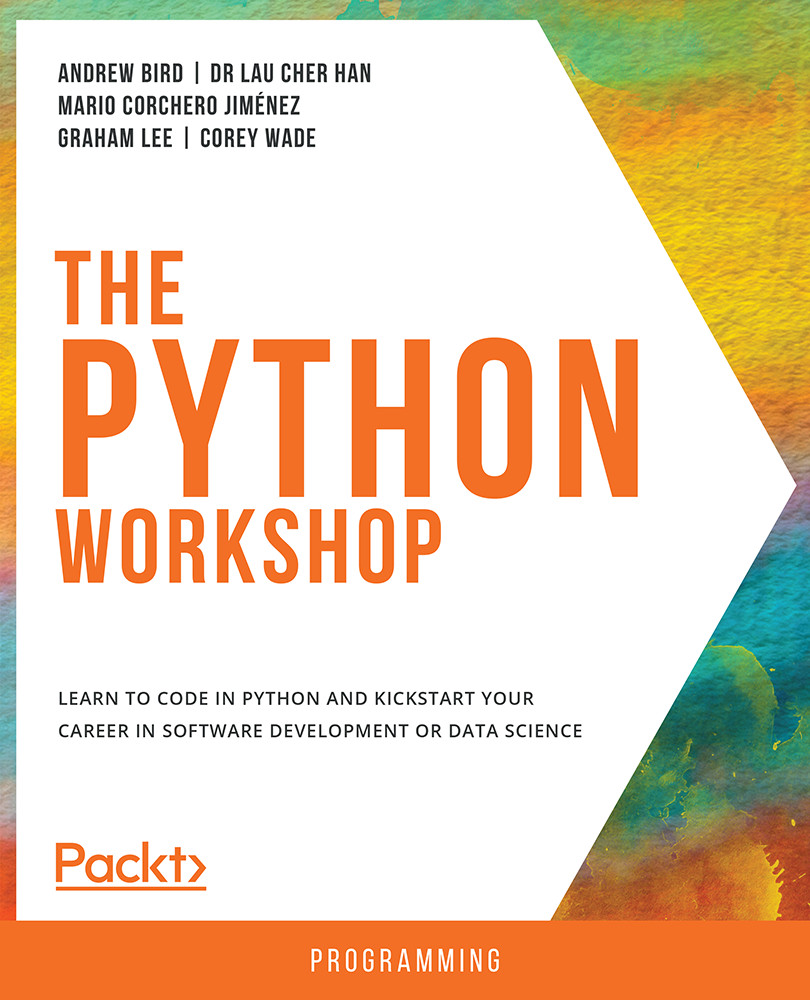-
Book Overview & Buying

-
Table Of Contents

The Python Workshop
By :

The Python Workshop
By:
Overview of this book
 Free Chapter
Free Chapter
 Sign In
Start Free Trial
Sign In
Start Free Trial


 Free Chapter
Free Chapter
In the IT world, most complex programs depend on libraries beyond the Python standard library. You may use numpy or pandas to deal with multidimensional data or matplotlib to visualize data in graphs (this will be covered in Chapter 10, Data Analytics with pandas and NumPy), or any number of other libraries available to Python developers.
Just like your own software, the libraries developed by other teams frequently change as bugs are fixed, features are added, and old code is removed or refactored, which is the process of restructuring existing code. That means it's important that your team uses the same version of a library so that it works in the same way for all of them.
Additionally, you want your customers or the servers where you deploy your software to use the same versions of the same libraries as well, so that everything works the same way on their computers, too.
There are multiple tools for solving this problem. These include pip, easy_install...

Change the font size
Change margin width
Change background colour